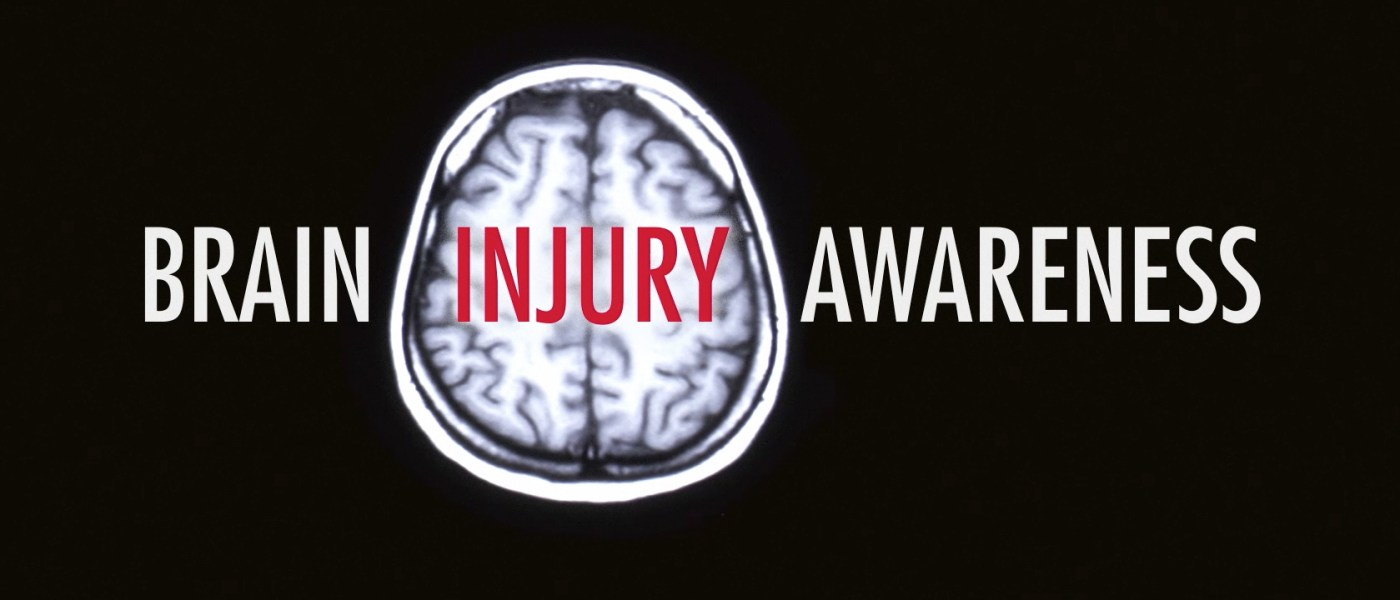As IED attacks became more prevalent during the last two wars in Iraq and Afghanistan, understanding the effects of traumatic brain injury (TBI) became a priority for medical professionals on the battlefield and back home. Once the short and long-term consequences of TBI on our Servicemembers was known, “toughing it out” was no longer an option.
Even sports medicine and leagues of all levels began to take notice.
In the Air Force video below, Lt. Col. Daniel Danczyk, 133rd Airlift Wing Flight Surgeon, discusses how brain injuries occur, how they affect people, and how they are treated. He highlights VA’s Polytrauma/TBI System of Care and how the department is leading the way in caring for Veterans with brain injuries. Dancyk goes on to encourage those affected by TBI to reach out and seek treatment.
“It’s OK to tell somebody you’re hurting,” Dancyk said. “The more somebody tries to go against what they’re feeling, the harder it is to get them the necessary treatment, and the longer they wait on treatment the less likely it is they’ll recover fully from it.”
Want to know more about TBI? Here is some information provided by VHA:
What is TBI?
Traumatic Brain Injury (TBI) may happen from a blow or jolt to the head or an object penetrating the brain. When the brain is injured, the person can experience a change in consciousness that can range from becoming disoriented and confused to slipping into a coma. The person might also have a loss of memory for the time immediately before or after the event that caused the injury. Not all injuries to the head result in a TBI.
How Does TBI Happen?
- The head being struck by an object, such as a bat or a fist during a fight
- The head striking an object, such as the dashboard in a car accident or the ground in a fall, or
- The head being affected by a nearby blast or explosion.
How severe is a TBI?
Severity of the TBI is determined at the time of the injury and is based on:
- Length of the loss of consciousness
- Length of memory loss or disorientation
- How responsive the individual was after the injury, for example, whether they were able to follow commands
The severity of the injury ranges from mild (a brief disorientation or loss of consciousness) to severe (an extended loss of consciousness or a penetrating brain injury, like a gunshot wound to the head). Mild TBI is also known as concussion.
Severity of TBI is a continuum and the particular classification used to designate a person as having mild, moderate or severe injury can be somewhat arbitrary. The severity level has prognostic value, in the sense that persons with more severe TBI tend to have more difficulty making complete recovery. However, it does not necessarily define the person’s likelihood of recovery.
What are the consequences of TBI?
TBI can cause a number of difficulties for the person who is injured. This can include physical changes, changes in the person’s behavior, or problems with their thinking skills. After an injury, a number of symptoms might be noted including headaches, dizziness/problems walking, fatigue, irritability, memory problems and problems paying attention. These changes are often related to how severe the brain injury was at the time of injury.
Where can I get care for TBI?
The Veterans Health Administration has a Polytrauma System of Care to treat and care for Veterans with TBI alone or in combination with other injuries and health conditions.
Depending on their health care needs, Veterans with TBI can receive treatment at one of the specialized rehabilitation programs in the Polytrauma System of Care, or they can seek treatment through their local VA Medical Center or community healthcare providers.
Treatments for TBI focus on the symptoms that cause most problems in everyday life. These can include:
- Medications;
- Learning strategies to deal with health, cognitive, and behavioral problems;
- Rehabilitation therapies (such as physical therapy, occupational therapy, speech-language therapy);
- Assistive devices and technologies.
Topics in this story
More Stories
Seven U.S. Army soldiers, one Army Reserve soldier and two Veterans are representing Team USA at the 2024 Olympic Games in Paris, which begins today.
Study underscores important role COVID vaccination can have in protecting Veterans from infection and reducing long-term health consequences
Columbia VA’s robotic surgery teams completed their 800th robotic surgery and are on schedule to hit 1,000 by the end of the year.







IEDs accounted for about 3,000 deaths in Iraq and Afghanistan, versus 8,000 in Vietnam, and probably more than that in Vietnam (and the wars before that).
My husbands problem is that He has had mutipul TBI and the curupt VA regional office in seatle that did his claim put his PTSD, Major depretion and Multipul TBI under the same rating when his PTSD rating alone was rated at 70’% so now at his current VA hospital He has no service connected TBI. And am denided treatment and services He requires like our request for the care giver program and he is also a high risk for falls as well as me having to remind him of medication showering brushing his teeth appointments and making Shure he eats.